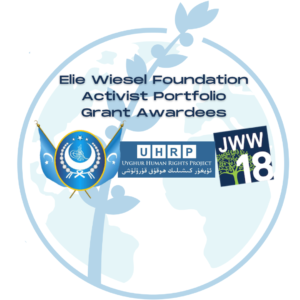I don’t sleep here, even with sleeping pills. I wake up after a few hours, images of the day racing through my head, trying to make sense of all I have witnessed and heard. This morning I got up at 4 am. I just couldn’t stand it anymore. I preferred to get up and busy myself with packing to leave for Bukavu. It wasn’t long before Janice and Naama were up also, trying to get pictures of the sunrise—some beauty amidst all this sadness.
As I write this we are on a boat on gorgeous Lake Kivu going between Goma and Bukavu. It is a very comfortable boat showing a Steven Segal movie—just what we all needed, more violence. But this is stupid, mindless “entertainment”. The scenery outside is exquisite. It feels like we could be in some beautiful vacation spot. It is a moment to decompress.
Instead, I talk to Giorgio, Director of Operations for International Medical Corps (IMC) in Eastern Congo. We discuss the complexity of the political situation here. I am trying to make sense of it all.
 If the humanitarian situation feels desperate, the political one seems completely impossible to untangle. There are various armed groups that continue to rape and pillage the country. There is the CNDP, former soldiers of the ousted rebel general Nkunda, now members of the Congolese army. Then there is the FDLR, comprised of Rwandan Hutu rebels who escaped into the Congo after the Rwandan genocide. There are also the Maimai, who are local militias created supposedly to protect their communities, but instead have morphed into terrorist groups. And then there is the FARDC, ostensibly government loyalists, but made up a various poorly integrated former rebel groups.
If the humanitarian situation feels desperate, the political one seems completely impossible to untangle. There are various armed groups that continue to rape and pillage the country. There is the CNDP, former soldiers of the ousted rebel general Nkunda, now members of the Congolese army. Then there is the FDLR, comprised of Rwandan Hutu rebels who escaped into the Congo after the Rwandan genocide. There are also the Maimai, who are local militias created supposedly to protect their communities, but instead have morphed into terrorist groups. And then there is the FARDC, ostensibly government loyalists, but made up a various poorly integrated former rebel groups.
The situation is so complex and goes back so many years. Added to this there are the constantly shifting loyalties and allegiances of the different bordering African countries—Uganda, Burundi, Tanzania, Zimbabwe, Angola, Rwanda, and Namibia. These allegiances change depending upon perceived self interest.
The final layer onto which all of this must be laid concerns the minerals which make Congo one of the most natural-resource-rich countries in the world. All of this destabilization leaves different mineral mines in various hands—none of which benefits the people. That is the tragedy here. I am told that 70% of all the mineral resources in the world are here. It is also one of the most beautiful countries in the world. And none of this benefits the people. Many tell us that the situation here is getting worse. A village was burned recently in North Kivu and last week IMC had to evacuate all their staff from Baraka due to fighting in the area. (Although I was told that they are going back today.)
I ask everyone the question of what needs to be done to move towards peace. No one gives me an answer. I come away with the feeling that until someone much smarter than I am can figure out a solution, or the various parties decide that enough is enough and the bloodshed and violence must end, all we can do is try to provide as much help and assistance to the innocent victims of this immoral war as possible.
While we are here we hope to identify programs that not only provide immediate assistance, but ones that help to change the culture of impunity that exists here. Perhaps then the true beauty of Congo will be allowed to flourish.


